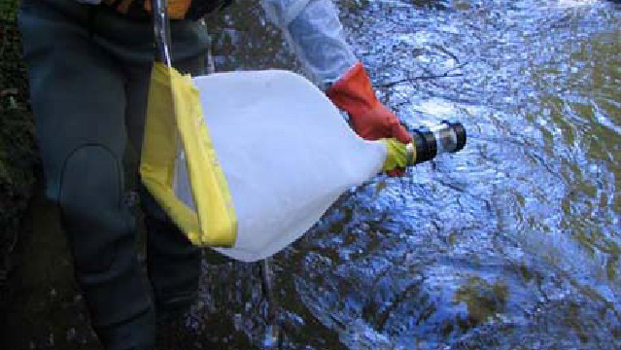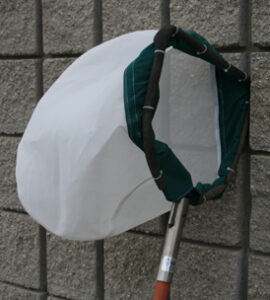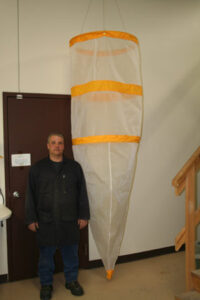
CABIN Protocol Benthic Kick Net (400 micron with collection bucket).
The Canadian Aquatic Biomonitoring Network (CABIN) is the national biomonitoring program developed by Environment Canada to provide standardized sampling protocols and a recommended assessment approach called the Reference Condition Approach (RCA) for assessing aquatic ecosystem condition.
CABIN is a collaborative program for the collection and assessment of biological data to determine the health status of aquatic ecosystems. Maintained by Environment Canada, CABIN provides participants with a nationally standardized protocol for the collection of benthic macroinvertebrate and stream information that is shared across the network using online tools. Collaborating with other agencies and organizations (both public and private) allows all participants to evaluate aquatic ecosystem health in a scientifically defensible manner at a fraction of the cost of doing so individually.
 Benthic Invertebrate Sampling
Benthic Invertebrate Sampling
What is a kick net?
CABIN uses a kick net sampling method standardized by sampling effort (i.e. time – 3 minutes). The kick net is a triangular metal frame holding a mesh bag of 400 micron size (Figure 16) with a collection cup at the end. One end of the metal frame is attached to a rake handle.
The part of the bag that attaches to the frame is made of canvas or ripstop-plastic tarpaulin to withstand abrasion. A detachable cup can be added to the end of the bag to facilitate removal of the sample. A 400 micron mesh net is recommended for general sampling.
Triangular kick net with 400 micron mesh net and detachable collection cup.
Bythotrephes
